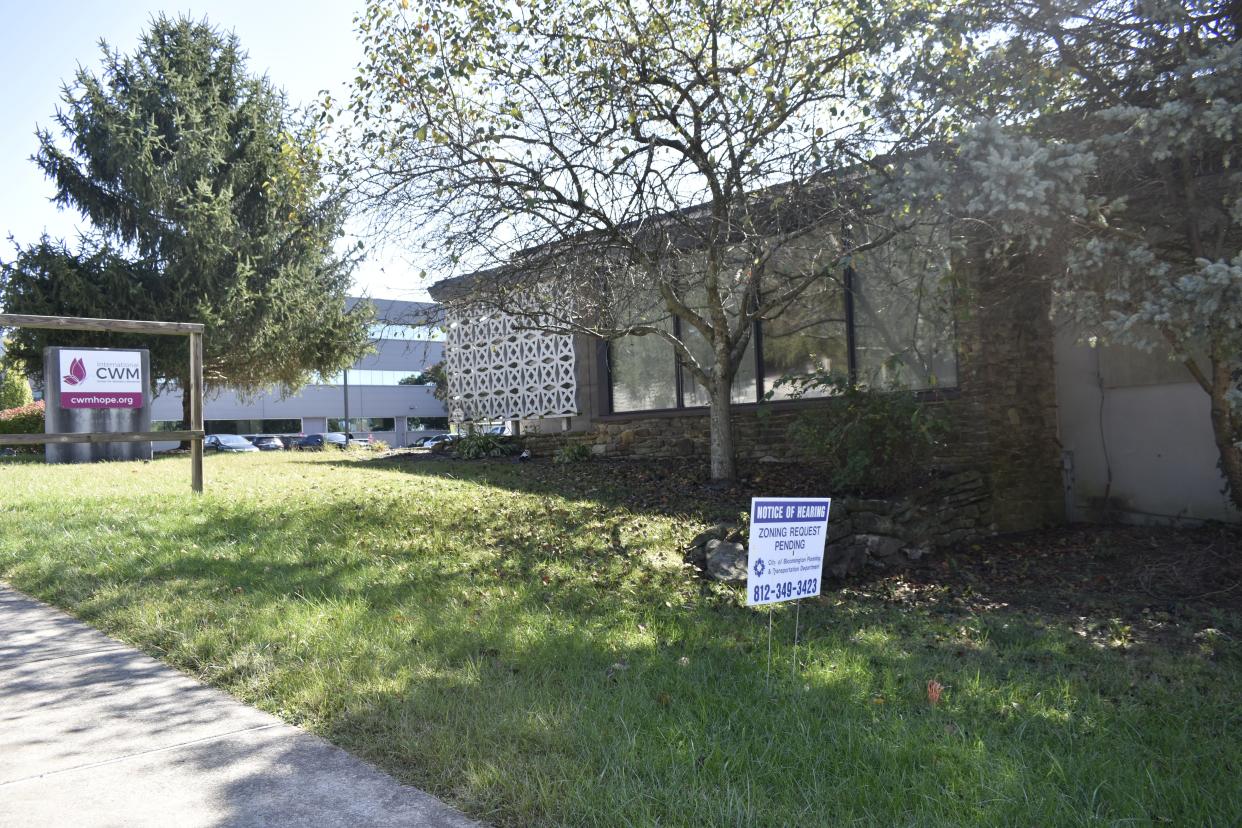Column: Beacon shelter move deserves financial support

Would compassion please step forward and state your name?
“We will swear you in. Is the testimony you are about to give the truth, the whole truth, and nothing but the truth?”
One by one they came to the podium. It was the city’s Board of Zoning Appeals. Eloquent supporters of a new, relocated homeless shelter they were. It would offer services for the thousands living at the ragged end of poverty. Beacon, Inc., which operates Shalom Community Center, is a frontline community service agency responding to homelessness, hunger, health issues, addiction and more.
One by one they came in supporting a larger and better shelter: more beds, food service, health care, employment assistance and more. Supporters cited statistics. Staff offered early architectural plans, reported on meetings with neighborhood residents and shared stories and poems written by people living on the streets.
Beacon's move: Prospect Hill residents amenable, mostly, to planned homeless shelter in neighborhood
Only one couple spoke in opposition. They lived nearby and shared concerns about potential dangers and possible loss of property value. Clearly the folks at Beacon, especially the center’s director, the Rev. Forrest Gilmore, were prepared.
Gilmore had previously met with the couple who were opposed. He spoke of his commitment to continue to be in communication with them and others in the neighborhood. They were appreciative. It was an impressive thing to see, this well planned and open-hearted expression of compassion.
Well done, Beacon!
There are still more plans to be made and many dollars to be raised. Even so, this is a big step in the right direction and the center might open as soon as 2025. Compassion stepped forward.
Still, I left aware many voices were missing-in-action. Where was the faith community? Yes, Rev. Gilmore is an ordained Unitarian pastor; but, apart from him, there were no other faith representatives speaking. Is this not a concern in our congregations?
I might have said a word. After all, Beacon’s earliest manifestation began in the 1990s when I was pastor at First United Methodist Church. A day-center, Shalom, started in the fellowship hall. It grew and improved in outreach. It is a gift to see what has developed over these decades. Even so, there was a hollowness in my chest as I wondered about the absence of other voices of faith today.
Where were the voices of those who struggle with homelessness now? Like so much that goes on in our liberal social service worlds, the truly poor are too often turned into voiceless objects. Recently I asked leaders working on homelessness in our community how those who are currently on the streets, or who have recently found a residence, were given voice in meetings and in planning?
I was told it was “difficult to do” and “being worked on.”
Okay.
I have asked leaders at the hospitals a similar question. Our institutions are better designed to fix someone than to listen to them or know them. The good folks at Beacon listen and respond; they seek to include. Others, many of us, who “care” seem to take the “it’s not my job” approach when it comes to listening to and knowing those who are “being helped.”
Where were the university representatives? Some national experts on homelessness teach in our nationally ranked business and public policy schools. And what of the administration and student leaders? Will they swear to “tell the truth and the whole truth” regarding homelessness in our city?
As in many college towns, our real-estate market is overwhelmed, and rents are soaring. Multiple new apartments and condos are occupied by people who do not work here. The university has backed away from offering more residential space, in large measure because students are wealthier than in the past. They now expect more than a dormitory room. Can the university’s mission be wide enough to teach about justice and good citizenship even while in school?
Apartment complexes have mushroomed with rents well beyond what many low-income and even working-class folks can afford. Does the university care about this consequence of their decisions?
Where were the leaders in the current city administration? Where was the mayor or his representative? We have watched as plans and promises for workforce and low-income housing languish and are often placed on the back burner. Meanwhile, out-of-town developers build quickly, take their profits, and have little else to do with this community.
Thankfully the likely new mayor has made housing for each, and all, a top priority. She speaks of building coalitions with vision for a more welcoming and just city. Perhaps we all should have been sworn in and asked to speak “the truth, the whole truth and nothing but the truth.”
I left the meeting wondering if there will be a demand for a larger facility 25 years from now. Or might we move toward new ways of thinking and acting? As we build this new homeless facility, might we explore more comprehensive and collaborative ways of being a community that welcomes, listens to and values all?
Compassion is a fine attribute and friend. However, this community is going to need more. In the short term, there is the need for financial support so the new Beacon facility and its programming can become a reality as soon as possible.
Compassion is a good thing. Might the time arrive when we ask the sister of compassion, named “justice,” to come forward and testify on all our behalf?
Philip Amerson is a resident of Bloomington and President-emeritus of Garrett-Evangelical Theological Seminary. He served as pastor of Bloomington First United Methodist from 1992-2000.
This article originally appeared on The Herald-Times: Column: Beacon move to Prospect Hill an example of our compassion

